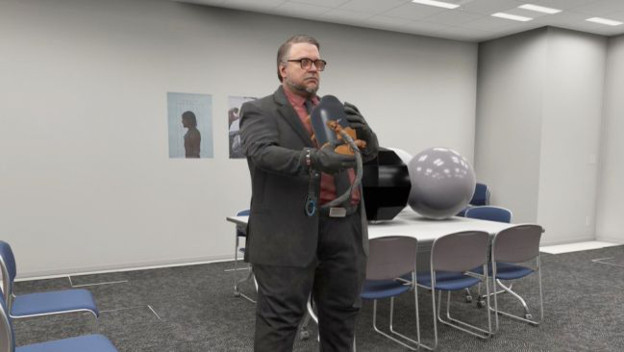Whenever a movie or TV series or a franchise does extremely well, the creators like to let fans know as soon as possible when it will continue. This same concept exists in a similar way for video game fans, but the “ASAP” announcement doesn’t come nearly as early as that of film or television franchises. The same is true for brand new IPs. Sometimes you’ll see trailers for films years before they even release, but video games usually wait until the 11th hour before they showcase screenshots or trailers. There are a lot of obvious reasons for this, but still many others that are just as mysterious as the industry itself.
A really great example of the video game industry’s secretive nature is the upcoming Hideo Kojima game, Death Stranding . Some screenshots and trailers have released already, but each has been more confusing than the next. Even actors within the very inner circle of Kojima’s trust are unaware of what the game is about. Guillermo del Toro did an AMA on Reddit where one fan asked him about Death Stranding . His response was surprising for many. As it turns out, Kojima simply asked del Toro over one day, at which point he scanned del Toro’s body and face. He was not told what his face and body would be used for and only found out when the teaser using his image released. Del Toro went even further to say that Kojima will send him gifts every once in a while, but doesn’t reveal anything further about Death Stranding .
It’s crazy that a possible major actor and close friend of the creator doesn’t even know what the game is going to be about. We can consider the fact that voice actors often don’t know very many details about projects, even in the film and television industry. They’re often just given their lines, and have no context of the rest of the movie outside of those. This is almost certainly true for video game voice and motion actors some times too. But even still, Guillermo del Toro’s story is a clear indicator that this kind of intense secrecy is everywhere within the video game industry.
He’s not even the only one. The head of first-party production at Xbox, Shannon Loftis, talked to GameSpot a while back about this very subject. She pointed to the fact that gaming is an experimental medium as the reason for most of the secrecy. Loftis also said potential delays are another big reason why information is kept on a need-to-know basis between the public and the industry. She said the thing she hates the most about her job is when she has to tell eager fans that their most looked forward to game has been delayed. That’s why announcements are made as close to the last second as possible, to avoid having to let-down fans when inevitable delays happen.

Risk assessment is a big part of video game announcements. When a developer and/or a publisher is as close to 100% sure they won’t run into any unexpected problems, then they can tell the public about the project. Before that they run the risk of getting excitement levels high and then dashing hopes and dreams across the board. One developer that is doing something outrageously different in this regard is CD Projekt Red who has taken the, “It’ll be done when we get it done,” approach to Cyberpunk 2077 ‘s development.
Even with video games’ current secrets, there are higher-ups like Loftis who have hopes that the future can be much less murky when it comes to developer/public interactions. There’s nothing in the works currently, but she said she’d love to see a completely transparent game development process. This would be one where creators would constantly and effectively communicate with players while making the game. Changes would be made during the developmental process to make the game better for fans before the process goes too far along for similar actions. There would also be the poential for gamers to better understand how developmental timelines work. They’d see the delays first-hand through such a transparent process, and perhaps would come out with a better understanding of how things work.
What do you think though? Is the secrecy within the video game industry just something that you know and accept? Or do you wish we could have a game created with the “radical transparency” Loftis hopes for? Personally I’d love to see the latter happen too.
Image Credit: Maciej Kuciara
